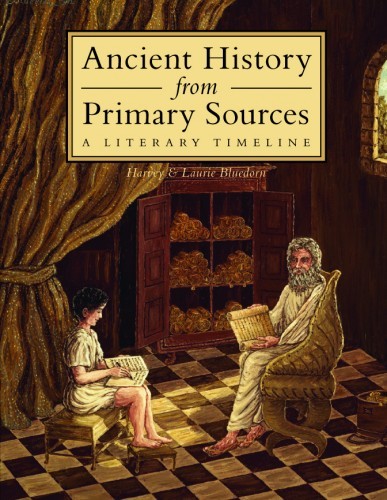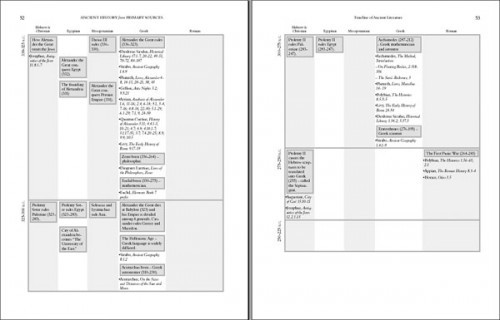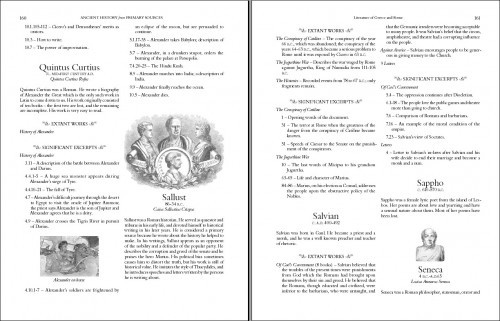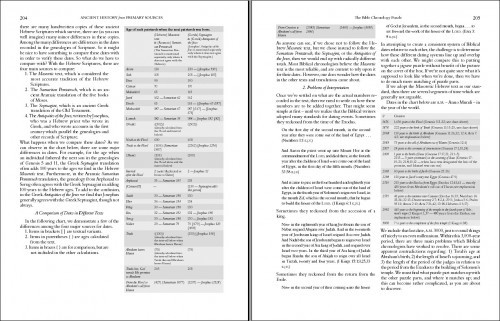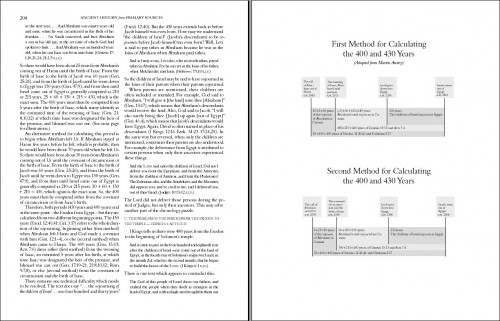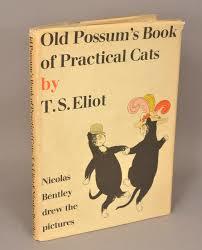Laurie Bluedorn's Blog, page 5
November 6, 2019
How to dull and chloroform a child’s reasoning abilities
When Less Is More: The Case for Teaching Less Math in School
In an experiment, children who were taught less learned more.
by Peter Gray Ph.D.
“In 1929, the superintendent of schools in Ithaca, New York, sent out a challenge to his colleagues in other cities. “What,” he asked, “can we drop from the elementary school curriculum?” He complained that over the years new subjects were continuously being added and nothing was being subtracted, with the result that the school day was packed with too many subjects and there was little time to reflect seriously on anything. This was back in the days when people believed that children shouldn’t have to spend all of their time at school work — that they needed some time to play, to do chores at home, and to be with their families — so there was reason back then to believe that whenever something new is added to the curriculum something else should be dropped.
One of the recipients of this challenge was L. P. Benezet, superintendent of schools in Manchester, New Hampshire, who responded with this outrageous proposal: We should drop arithmetic! Benezet went on to argue that the time spent on arithmetic in the early grades was wasted effort, or worse. In fact, he wrote: “For some years I had noted that the effect of the early introduction of arithmetic had been to dull and almost chloroform the child’s reasoning facilities [sic? faculties].” All that drill, he claimed, had divorced the whole realm of numbers and arithmetic, in the children’s minds, from common sense, with the result that they could do the calculations as taught to them, but didn’t understand what they were doing and couldn’t apply the calculations to real life problems. He believed that if arithmetic were not taught until later on — preferably not until seventh grade — the kids would learn it with far less effort and greater understanding….”
Read the rest of the article here.
October 29, 2019
How would you answer this?
Do you read things aloud to your kids that you and they think are just “ok”? Or do you stop books in the middle if you aren’t feeling it? I want reading aloud to be our primary source of learning, but then get stuck in making sure we are doing the “subjects” and sometimes we end up reading stuff we don’t like as much. Should I just let this go and read what we want? All that we read is high quality literature (fiction, historical fiction, etc). We tend to not like “nature books” or plain history books as much as fiction.
If a book was tedious to me, then I quit reading it unless the kids really wanted me to continue.
Earlier is not better by Sue VanHattum
9. Earlier is not better.
The schools are pushing academics earlier and earlier. That’s not a good idea. If young people learn to read when they’re ready for it, they enjoy reading. They read more and more; they get better and better at it; reading serves them well. The same can happen with math. Daniel Greenberg, working at a Sudbury school (democratic schools, where kids do not have enforced lessons) taught a group of 9 to 12 year olds all of arithmetic in 20 hours. They were ready and eager, and that’s all it took.
In 1929, L.P. Benezet, superintendent of schools in Manchester, New Hampshire, believed that waiting until later would help children learn math more effectively. The experiment he conducted, waiting until 5th or 6th grade to offer formal arithmetic lessons, was very successful. (His report was published in the Journal of the NEA. Although some people disagree about the success of this experiment, there is nothing published which contradicts his evidence. I’d like to find more information about how this project ended.).
Read the rest of this article here.
Photo of the Day
Three of my four daughters — missing Desi.
Left to right — Johannah Stanford, Ava West, Helena Auberg
October 1, 2019
Don’t forget about free Amazon Kindle today — Ancient History from Primary Sources
Ancient History from Primary Sources: A Literary Timeline
by Harvey and Laurie Bluedorn
This illustrated reference book guides the student on a selective timeline tour through ancient history, outlining the major events and personalities and noting the primary literary sources from which these things are known. Covers the period from the creation of the world to A.D. 476. Each event or person in history is accompanied by suggested readings from various ancient sources, leading you through the maze of ancient literature. The classical literature we cite is suitable for students ages twelve and up — some suitable for younger students. 222 pages
The Kindle version is FREE for 2 days — October 2-3.
Download your free copy here.
Here is the special offer:
On October 2-3 (these two days only) the Kindle version of Ancient History from Primary Sources: A Literary Timeline will be free. In addition, if you download the Kindle version sometime during the two day period and write an Amazon review, we’ll send you one of the following ebooks from the Trivium Pursuit catalog (in PDF format). You can choose one of these six ebooks:
Ancient Literature — Significant Excerpts From the Books of Classical Authors Which You Can Use to Supplement Your History Curriculum
Volume One — Julius Caesar
Volume Two — Alexander the Great
Volume Three — Augustus, Jesus Christ, and Tiberius
Volume Four — Ancient Egypt
Volume Five — Caligula, Claudius, and Paul
Volume Six — Nero, Paul, and the Destruction of Jerusalem
After you download Ancient History from Primary Sources: A Literary Timeline and post your review on Amazon here, send an email to bluedorn @ triviumpursuit.com with the title of the ebook you would like.
Three categories of ancient literature and how to decide what to read
Three categories of ancient literature:
1. Authors who are useful (but should be pre-read)
Generally speaking, the more useful works are found in the categories of history, geography, biography, oratory, rhetoric, logic, grammar, science, medicine, mathematics, architecture, military, agriculture, and fables. We recommend that they be pre-read by parents. Remember, all of these works are written from a pagan worldview, so none of them can be considered truly “neutral.”
–Historians, Geographers, & Biographers
Ammianus
Appian of Alexandria
Aristotle
Arrian
Augustus
Dio Cassius
Diodorus Siculus
Diogenes Laertius
Dionysius of Halicarnassus
Eusebius
Eutropius
Herodian
Herodotus
Josephus
Julian the Apostate
Julius Caesar
Justin
Livy
Lucan
Nepos
Nicolaus of Damascus
Pausanias
Philo
Plutarch
Polybius
Priscus
Quintus Curtius
Sallust
Socrates Scholasticus
Sozomen
Strabo
Suetonius
Tacitus
Theodoret
Theodosius II
Thucydides
Velleius
Xenophon
–Orators
Aeschines
Antiphon
Cicero
Demosthenes
Dio Chrysostom
Isocrates
Lysias
Pericles (included in Thucydides)
Pliny the Younger
–Rhetoricians, Logicians, & Grammarians
Aristotle
Cicero
Dionysius of Halicarnassus
Gellius
Quintilian
Varro
–Scientists, Physicians, Mathematicians, Architects, Military, & Agriculture
Aristarchus
Aristotle
Archimedes
Cato the Elder
Celsus
Eratosthenes
Euclid
Frontinus
Galen
Hippocrates
Nicomachus of Gerasa
Pliny the Elder
Varro
Vegetius
Vitruvius
–Fables
Aesop
Avianus
2. Authors for mature christians
After they are firmly grounded in Christian philosophy and theology, more mature Christians may read the philosophers and the Christian apologists. Remember, there is nothing truly neutral about the philosophers, and even the Christian apologists have many unbiblical ideas in their thinking.
–Philosophers
Anaxagorus
Anaximander
Aristotle
Cicero – Stoic
Epictetus – Stoic
Epicurus – founder of Epicurean school
Lucretius – Epicurean
Marcus Aurelius – Stoic
Philo – Jewish
Plato
Pyrrho – founder of Skeptic school
Pythagoras
Seneca – Stoic
Socrates (found in Plato and Xenophon)
Thales – first philosopher
Xenophon – follower of Socrates
Zeno – founder of Stoic school
–Christian apologists (Some of these writings may be appropriate for younger students, but many of these writings are philosophical in nature.)
Ambrose
Aristides
Athanasius
Augustine
Clement of Alexandria
Clement of Rome
Commodianus
Cyprian
Ignatius
Irenaeus
Jerome
John Chrysostom
Justin Martyr
Lactantius
Origen
Prudentius
Salvian
Tertullian
Theodore
3. Authors with much questionable and graphic content
With few exceptions, the poets, satirists, tragedians, and comedians wrote questionable and graphic content which is simply inappropriate. Mature adults who have a special purpose may find a need to handle this material, but put on the chore boots first, and take a thorough
shower after you’re finished.
–Poets and Satirists (Some exceptions: The political poetry of Solon and Tyrtaeus is useful. Virgil’s Georgics may be useful. Lucian’s Life of Peregrinus is useful.)
Catullus
Hesiod
Homer
Horace
Juvenal
Lucian of Samosata
Lucilius
Martial
Menander
Ovid
Pindar
Sappho
Solon
Theocritus
Tyrtaeus
Virgil
–Tragedians and Comedians (Exception: The historical play The Persians by Aeschylus may be useful.)
Accius
Aeschylus
Aristophanes
Ennius
Euripides
Pacuvius
Plautus
Seneca
Sophocles
Terence
A few general comments on authors and literature:
Many persons begin in classical literature with the fables of Aesop (Greek) and Avianus (Latin). These are suitable for all ages, young and old.
Some literature suitable for ages ten and up:
Caesar – Gallic War and Civil War
Josephus – War of the Jews
Xenophon – Anabasis
Some literature suitable for ages twelve and up:
Ammianus – The History
Appian of Alexandria – The Roman History
Arrian – Anabasis of Alexander
Cato the Elder – On Agriculture
Eusebius – The History of the Church
Gellius – Attic Nights
Herodotus – The History of the Persian Wars
Julian the Apostate – Letters
Livy – The Early History of Rome
Pliny the Elder – Natural History
Plutarch – Lives
Quintus Curtius – History of Alexander
Socrates Scholasticus – History of the Church
The works of Xenophon are a mixed bag. Some are appropriate for even a ten-year-old (Anabasis), while others are quite inappropriate (Symposium). On the Deaths of the Persecutors, by the Christian apologist Lactantius, is more historical than philosophical, and may be read profitably by students age twelve and up. Most of Herodotus may be fine to read for students age twelve and up, but the very beginning and other short sections of Book 1 may be skipped because of content. Aristotle’s historical work (The Athenian Constitution) and his works on natural history (History of Animals, On the Parts of Animals, etc.) may be valuable for students age twelve and up, while his works on logic (Categories, Prior Analytics, etc.) and physics (Physics, On the Heavens, etc.) are better suited for rhetoric-level students. We suggest that Aristotle’s philosophical works (Metaphysics, Politics, Nicomachean Ethics) be reserved for mature Christians with a good foundation in theology and with sharpened analytical and critical skills. Cicero is listed among orators, rhetoricians, and philosophers, but his letters provide us with much valuable historical information, so he could also be listed under historians. Most of Cicero’s works are appropriate for students age twelve and up, except perhaps his Stoic philosophical works (On the State, On the Supreme Good and Evil, etc.), which could be left for the mature Christian. The mythological works and love poetry (works of Homer, Sappho, Ovid, Martial, Juvenal etc.) have a great reputation with the world, and that is one very strong reason for the Christian to handle them with utmost caution. There is no question that Hesiod and Homer are fundamental to understanding Greek culture, but that is no justification for sacrificing the tender conscience of a child to their fantasies, brutalities, and perversions. Historical poetry and plays (The Persians by Aeschylus, the political poetry of Solon) can be read by ages twelve and up.
Ancient History — Using Primary Sources
Sample pages from Ancient History from Primary Sources: A Literary Timeline
This book will be free on Amazon Kindle October 2-3.
Using primary sources whenever practical is a hallmark of classical education
Review of our book Ancient History from Primary Sources: A Literary Timeline by Cathy Duffy
“Long-time advocates of classical education, the Bluedorns have come up with a way to make classical education less costly in terms of both time and money. Using primary sources whenever practical is a hallmark of classical education, but generally that means many trips to the library, searching for out-of-print books, hunting on the internet, and otherwise going to a good deal of trouble to get the resources. And once you’ve found a resource, what do you do with it? Do you have your child read the entire book? How can you know which parts are valuable and which would be better skipped?…”
Read the rest of the review here.
September 29, 2019
The Old Gumbie Cat by T. S. Eliot
The Old Gumbie Cat
by T. S. Eliot (1939)
I have a Gumbie Cat in mind, her name is Jennyanydots;
Her coat is of the tabby kind, with tiger stripes and leopard spots.
All day she sits upon the stair or on the steps or on the mat:
She sits and sits and sits and sits—and that’s what makes a Gumbie Cat!
But when the day’s hustle and bustle is done,
Then the Gumbie Cat’s work is but hardly begun.
And when all the family’s in bed and asleep,
She tucks up her skirts to the basement to creep.
She is deeply concerned with the ways of the mice—
Their behaviour’s not good and their manners not nice;
So when she has got them lined up on the matting,
She teaches them music, crocheting and tatting.
I have a Gumbie Cat in mind, her name is Jennyanydots;
Her equal would be hard to find, she likes the warm and sunny spots.
All day she sits beside the hearth or on the bed or on my hat:
She sits and sits and sits and sits—and that’s what makes a Gumbie Cat!
But when the day’s hustle and bustle is done,
Then the Gumbie Cat’s work is but hardly begun.
As she finds that the mice will not ever keep quiet,
She is sure it is due to irregular diet
And believing that nothing is done without trying,
She sets right to work with her baking and frying.
She makes them a mouse-cake of bread and dried peas,
And a beautiful fry of lean bacon and cheese.
I have a Gumbie Cat in mind, her name is Jennyanydots;
The curtain-cord she likes to wind, and tie it into sailor-knots.
She sits upon the window-sill, or anything that’s smooth and flat:
She sits and sits and sits and sits—and that’s what makes a Gumbie Cat!
But when the day’s hustle and bustle is done,
Then the Gumbie Cat’s work is but hardly begun.
She thinks that the cockroaches just need employment
To prevent them from idle and wanton destroyment.
So she’s formed, from that lot of disorderly louts,
A troop of well-disciplined helpful boy-scouts,
With a purpose in life and a good deed to do—
And she’s even created a Beetles’ Tattoo.
So for Old Gumbie Cats let us now give three cheers—
On whom well-ordered households depend, it appears.
James 4:1-10 The Cause and Cure of Conflict among Brethren
Dear Mr. Bluedorn,
Would you mind giving me a literal translation of James 4:5. I am reading it from two different languages and they simply say different things. Gracias! Carolina
XT (XT = eXegetical Translation, 2000 etc.)
1 What {is} the cause of {hostile} conflicts and {contentious} disputes among you? {It is, is it} not, from this cause: from those pleasures [/cravings] of yours, which serve as soldiers [/wage war] among your members.
2 You are {always} strongly desiring, and yet you are never possessing; you are {always, speaking spiritually,} committing murder and coveting, and yet you are never able to obtain {your pleasures}; you are {always contentiously} disputing and having {hostile} conflicts. You are never possessing because of your never {rightly} making a {spiritual} claim [/petitioning {prayer}].
3 You are {always formally} making a claim, and yet you are never {actually} taking possession {of the thing claimed}, because you are {always} making the claim with wrong {motives, namely:} that you may freely spend [/consume] {the thing claimed} on your pleasures.
4 {O you} adulterers and adulteresses {speaking spiritually}! You do know, {do you} not, that friendliness with [/active fondness toward] the world is enmity with [/active hostility toward] God? So then, whoever may prefer [/choose] to be a {fond} friend of the world, he {thereby} makes himself a {hostile} enemy of God.
5 Or are you {in the habit of} thinking that the Scripture is {recurrently} saying {this} for no {effective} purpose: {that} the spirit {— the inner personality —} which He has caused to dwell in us is {continually} yearning toward envy [/resentfulness].
6 Yet He does grant a superior [/greater] grace. For this reason He says, “God arrays Himself in battle against [/opposes] {those who are} proud [/haughty /arrogant], but He grants grace to {those who are} lowly [/humble /unpretentious].” [Proverbs 3:34]
7 So then, put yourselves in submission under God: take a stand against [/resist] the devil, {for only} then will he flee for safety from you;
8 draw close to God, {for only} then will He draw close to you; {outwardly} cleanse {your} hands, {O you} sinners, and {inwardly} purify {your} hearts, {O you who are, practically speaking} between two opinions;
9 lament, and mourn, and weep aloud, let your laughter be changed into mourning, and your joy into shame [/dejection /horror];
10 cause yourselves to be humbled in the sight of the Lord, {for only} then shall He lift you up [/exalt you].
Read the rest of the article here.


